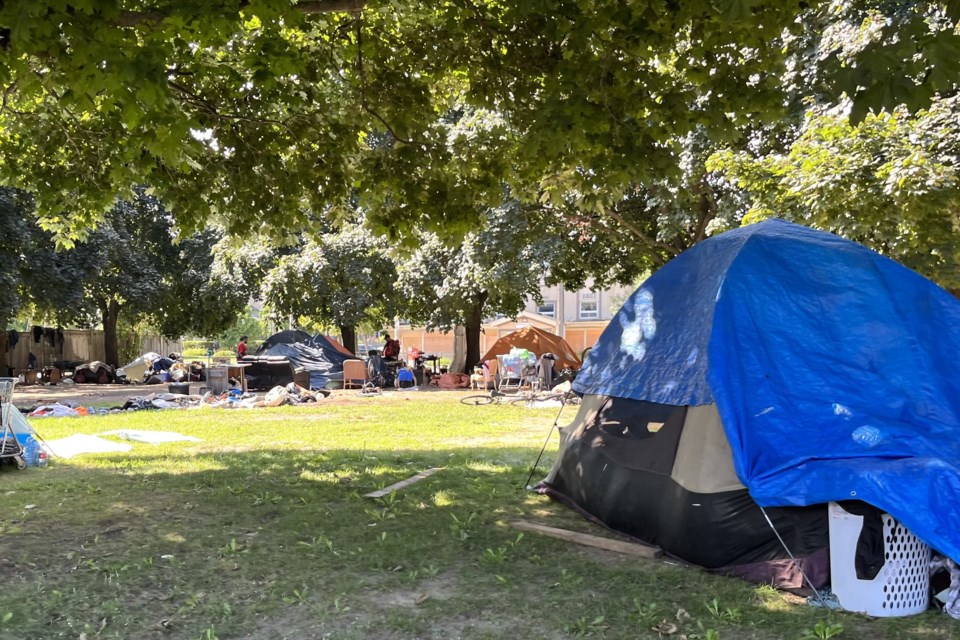FLAMBOROUGH - A sanctioned encampment with tiny shelters could be built in Hamilton before the snow comes, according to Mayor Andrea Horwath.
Horwath plans to go ahead with constructing tiny, outdoor shelters using her strong mayor powers. Council members discussed the plans at a general issues committee (GIC) meeting on Wednesday, with the issue going to council next week.
By using her strong mayor powers, Horwath will be able to pass the project whether council approves it or not.
A city report estimates the project will cost around $7 million to build, including operating costs for the first year.
The encampment will cost around $3.9 million to operate per year after its first year. It will also require seven new full-time city employees, for around $800,000 per year.
Some of that money will come from the city’s Housing Sustainability and Investment Roadmap Reserve, but a number of aspects of the project will be paid for out of the 2025 municipal budget.
The city will also add 192 beds across the city’s shelter system, at places like Interval House shelter for women, Wesley Special Care Unit, and as part of Wesley’s Asylum Seeker Assistance Program.
Those extra beds will cost around $7.3 million per year after the first year.
Horwath has referred to the sanctioned encampment as a pilot project, meant to address the homelessness and housing crisis in the city. In August, the city reported that about 60 people have died on the streets in Hamilton in 2024.
She called homelessness and the housing issue "the biggest crises that we face."
With winter approaching, time is limited for the city to provide support to get people indoors before temperatures become dangerous.
“What this report does is provide recommendations and opportunities to undertake initiatives that can be operationalized immediately,” Horwath said.
“This particular effort bridges a gap that we currently have, when we talk about wraparound supports 24/7, to provide people with what they need. That’s what this is about.”
HATS could be involved with pilot program
Residents in Flamborough have taken to social media to share their frustration at the cost of the project, which will partially be funded by income tax dollars from residents across the city — including residents in rural Hamilton, where encampments are uncommon.
But Waterdown’s city councillor, Ted McMeekin, has been a longtime supporter of tiny shelters and was one of the founders of the Hamilton Alliance for Tiny Shelters (HATS) prior to taking office as Ward 15 councillor.
At the GIC meeting, McMeekin pointed to Kitchener’s Better Tent City, which has been operating since 2020 and, he said, has seen positive results.
“One of the key factors to the success of the Better Tent City is that they have live-in staff,” he said.
Dan Bednis, a Flamborough resident, is the chair of HATS. He says this decision is “better late than never.”
In an email to FlamboroughToday, Bednis said he appreciates that the pilot program will provide residents living in encampments a "new level of dignity", which he says HATS has been promoting for years.
Bednis also said he appreciates the use of available funding the report takes advantage of.
And a potential collaboration with HATS could happen in the future.
"It sincerely acknowledges HATS as a truly viable option with the collaborative pursuit of a suitable site and operations partner," he said.

